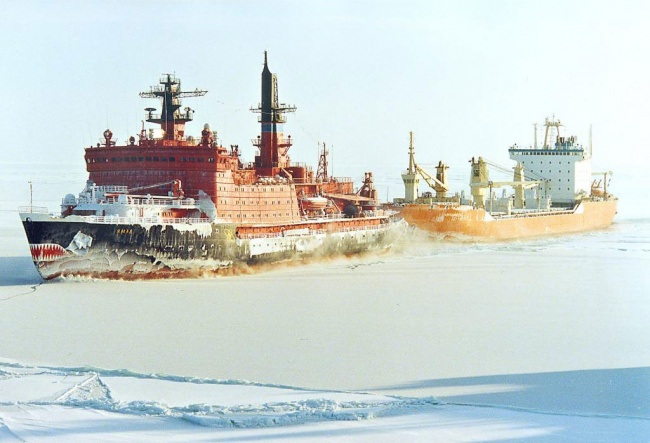GLONASS comes to Russian Arctic ports

The Russian space-based satellite navigation system will significantly facilitate shipping to remote destinations, Deputy Prime Minister Dmitry Rogozin argues.
An additional 30 Russian sea ports will in the near future be equipped with instruments which will allow them to catch signals from the Glonass system, the deputy premier said in a meeting with Russian space agency Roscosmos this week.
Among the 30 ports will be given priority to sites along the Northern Sea Route, as well as the Crimea and the country’s southern coasts, Rogozin underlined.
So far, only about half of Russia’s sea ports are equipped to handle the Russian-made navigation system, TASS reports.
According to Rogozin, the introduction of GLONASS will make it significantly easier to conduct precise pilotage in the port areas.
The Global Navigation Satellite System (GLONASS) is a Russian-made space-based satellite navigation system, which provides an alternative to GPS.
Development of the system started in the late 1970s in Soviet Union. By 2010, GLONASS had achieved 100 percent coverage of Russian territory and in October 2011, the full orbital constellation of 24 satellites was restored, enabling full global coverage.
Related stories from around the North:
Canada: Test clean energy solutions in south before implementing them in Arctic communities: report, Radio Canada International
Finland: Nord Stream 2 applies for Finnish building permit to build gas pipeline, Yle News
Norway: ‘We will come back’, Statoil says after disappointing results in Barents Sea, The Independent Barents Observer
Russia: Chinese company confirms interest in trans-Arctic shipping to Arkhangelsk, The Independent Barents Observer
Sweden: Volvo to go all electric starting in 2019, Radio Sweden
United States: U.S. transportation secretary announces efforts to speed up project development in Alaska, Alaska Dispatch News



